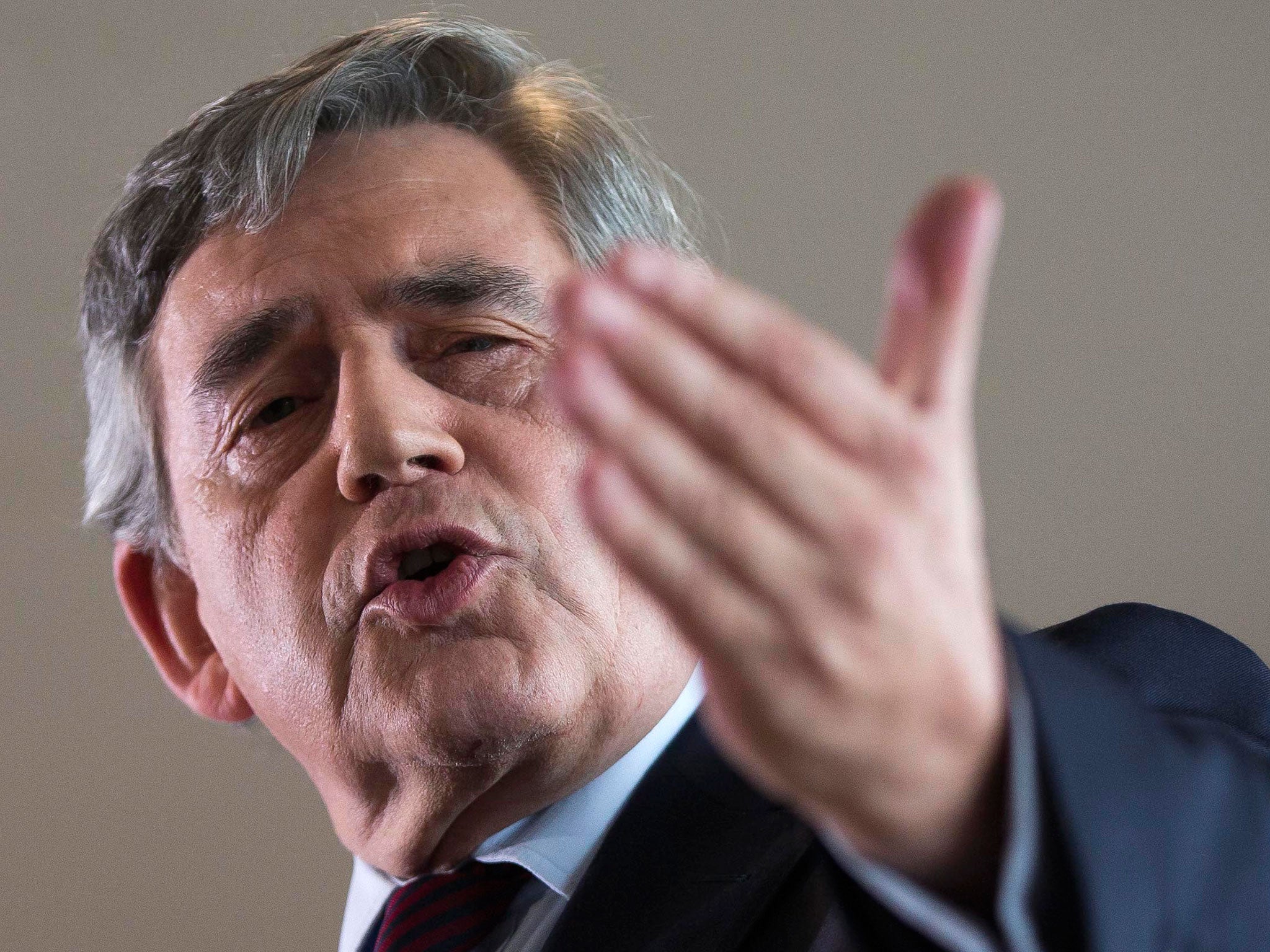Labour leadership: Gordon Brown seeks another referendum moment to defeat Jeremy Corbyn
An impassioned speech from the former PM turned the tide of the Scottish vote

Your support helps us to tell the story
From reproductive rights to climate change to Big Tech, The Independent is on the ground when the story is developing. Whether it's investigating the financials of Elon Musk's pro-Trump PAC or producing our latest documentary, 'The A Word', which shines a light on the American women fighting for reproductive rights, we know how important it is to parse out the facts from the messaging.
At such a critical moment in US history, we need reporters on the ground. Your donation allows us to keep sending journalists to speak to both sides of the story.
The Independent is trusted by Americans across the entire political spectrum. And unlike many other quality news outlets, we choose not to lock Americans out of our reporting and analysis with paywalls. We believe quality journalism should be available to everyone, paid for by those who can afford it.
Your support makes all the difference.A year ago an impassioned, rabble-rousing speech by Gordon Brown was credited with turning the tide of the Scottish referendum debate and pushing the “no” campaign over the line to victory.
The former Prime Minister attempted to do for the moderates in his party what he did for the Union in a last-ditch intervention to prevent Jeremy Corbyn becoming the next Labour leader.
Continually pacing the stage of a room in the Royal Festival Hall, where Labour celebrated victory in 1997, Mr Brown evoked the giants of the party’s past to try and persuade Mr Corbyn’s army of idealists that power was as important as principles.
Labour, he said, must learn from its history that the only way to implement policy was to be elected into government in the first place – something that Mr Corbyn was unlikely to achieve.
“When I see the opinion polls that say the one grouping in the party that is likely to get most votes is the one grouping that even its own supporters say is least likely to be able to form a government, then we have to look at the lessons of our history,” he said.
“Anger is not enough. We need to have a credible, radical, electable alternative. And so having principles and having power cannot be opposites. They are inextricably bound to each other.”
Defending the record of his time in office, and New Labour more generally, Mr Brown highlighted the minimum wage, investment in the NHS and tax credits as “power used for a purpose”.
“We seek power out of principle,” he told his audience. “But we cannot win power if we do not win the people.”
Acknowledging that many voters had concerns about the threats of globalisation, fuelling the rise of non-establishment figures such as Mr Corbyn, Mr Brown said it would still be a mistake for Britain to turn its back on the world.
“If we are going to solve the problems of both the global economy, global finance, global climate change, if we are going to solve the problems of global inequality and poverty, we will need a level of global co-operation to match our national endeavours that is higher, and at a far more sustained and advance level, than ever before,” he said.
And pointedly he added: “If our global alliances are going to be alliances with Hezbollah and Hamas and Hugo Chavez’s Venezuela and Vladimir Putin’s Russia, there is no chance of building a worldwide alliance that could deal with poverty and inequality and climate change and financial instability.”
Mr Brown’s remarks come as Mr Corbyn’s rival for the leadership Yvette Cooper warns that his victory would make it easier for the Conservatives to implement harsher austerity measures.
“If Jeremy wins, it would give them free rein,” she told The Independent.
“My formative years were spent under the Thatcher government, and the Thatcher government could do what it wanted because it didn’t feel challenged or threatened by the Labour party.”
“Now they only have a majority of 12 and we actually should be in a position to put pressure on them. The danger is we let them off the hook.”
But the attacks on Mr Corbyn by Ms Cooper and Mr Brown have not been adopted by Andy Burnham. In a speech on Monday he will attempt to ally himself with the front runner and controversially suggest that it is only he and Mr Corbyn who have set out a “vision” for the party.
He will also promise to include Mr Corbyn and his supporters in any shadow cabinet he leads to help him “re-build the party from the bottom up”.
Join our commenting forum
Join thought-provoking conversations, follow other Independent readers and see their replies
Comments